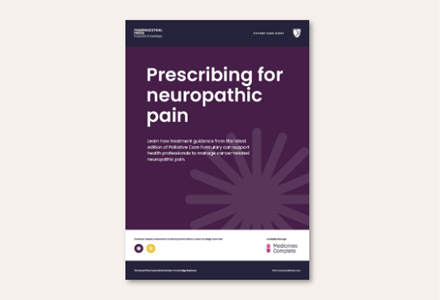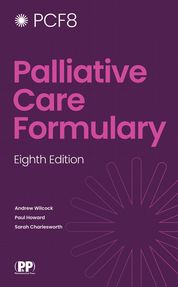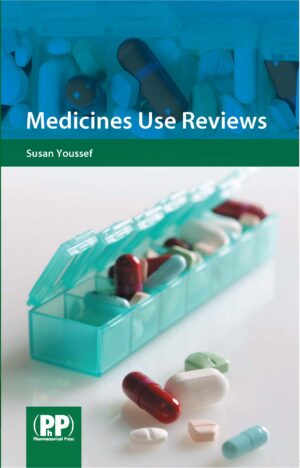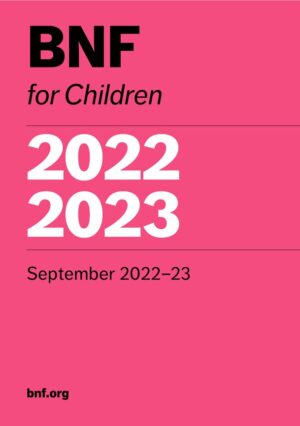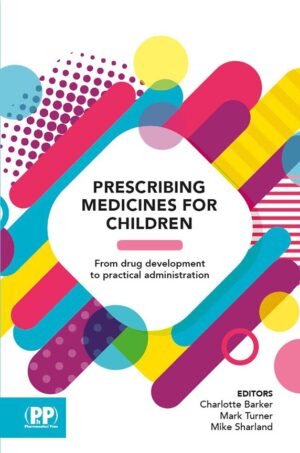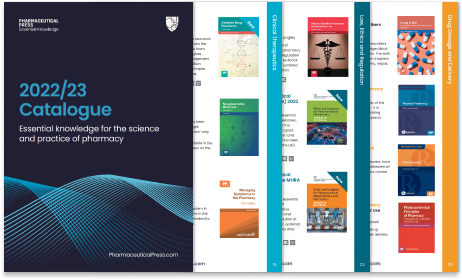Description
Rigorously researched information grounded in clinical practice tailored for use in palliative and hospice care settings. This trusted source goes beyond standard references, providing health professionals with in-depth, practical guidance on drugs and treatment regimens to help improve quality of life.
Updates in the new edition:
- Renamed monograph (Tricyclic antidepressants) and two discontinued - (Carbamazepine and Danazol)
Fully reviewed and updated monographs including for:
- Individual strong opioid analgesic drug monographs and Quick Clinical Guides
- Antidepressants class and individual drug monographs
- Anti-epileptics class and individual drug monographs including a significantly updated section on the management of seizures and the use of subcutaneous levetiracetam
- Bisphosphonates monograph including the 2020 ESMO clinical practice guidelines and a new joint summary table for the indications of use for bisphosphonates and denosumab in palliative care
- Denosumab monograph including the 2020 ESMO clinical practice guidelines
- Drugs and fitness to drive chapter including updates to the summary table of the available evidence for sedative drugs
- Renal impairment chapter including significant changes to the sections on assessing renal function, and opioid use in renal impairment
- Drug administration to patients with swallowing difficulties or enteral feeding tubes chapter including a new step-wise approach for alternative formulations, and a fully updated table on commonly used alternative product
Targeted updates to monographs including:
- H2-receptor antagonists monograph updated to reflect the alternative oral and parenteral options due to the world-wide absence of ranitidine
- Proton pump inhibitors monograph significant updates to the parenteral administration section
- Clonidine monograph, involving significant updates to the dose and use section and a new summary of dexmedetomidine use
- Drugs for diabetes monograph updated to include the 2021 Diabetes UK guidelines and the 2021 Joint British Diabetes Societies Inpatient Care Group guidelines.
- Significant changes to the sections on corticosteroid-induced diabetes mellitus, the management of hypoglycaemia, and the management of spikes of
- hyperglycaemia in the last few weeks of life
- Systemic corticosteroids significant updates on the risks of adrenal insufficiency including information about the new steroid emergency card and information on the
- evidence of use for appetite stimulation
- Anaphylaxis appendix updated to reflect the 2021 Resuscitation Council UK guidelines.
PCF8 also includes several Quick Clinical Guides covering key topics in palliative care and designed for everyday use.
Drug names
Abbreviations
Part 1: Drug Monographs
- Gastro-intestinal system
- Antacids and antiflatulents
- Antimuscarinics
- Prokinetics
- H2-receptor antagonists
- Proton pump inhibitors
- Loperamide
- Laxatives
- Topical products for haemorrhoids
- Pancreatin
2. Cardiovascular system
Furosemide
Spironolactone
Systemic local anaesthetics
*Clonidine
Glyceryl trinitrate
Nifedipine
Anticoagulants
• Haemostatics
• 3 Respiratory system
• Bronchodilators
• Inhaled corticosteroids
• Oxygen
• Drugs for cough
• 4 Central nervous system
• Benzodiazepines and Z-drugs
• Melatonin
• Antipsychotics
• Antidepressants
• *Psychostimulants
• *Cannabinoids
• Anti-emetics
• Anti-epileptics
• 5 Analgesics
• Principles of use of analgesics
• Adjuvant analgesics
• Paracetamol
• Nefopam
• Non-steroidal anti-inflammatory drugs (NSAIDs)
• Weak opioids
• Strong opioids
• Opioid antagonists (therapeutic target within the CNS)
• Opioid antagonists (therapeutic target outside the CNS)
• 6 Infections
• Antibacterials in palliative care
• Oral candidosis
• Metronidazole
• Rifampicin
• Urinary tract infections
• Cellulitis in a lymphoedematous limb
• 7 Endocrine system and immunomodulation
• Bisphosphonates
• Denosumab
• Systemic corticosteroids
• Demeclocycline
• Desmopressin
• Drugs for diabetes mellitus
• *Octreotide
• Progestogens
• *Thalidomide
• 8 Urinary tract disorders
• Tamsulosin
• Urinary antimuscarinics
• Methenamine hippurate
• Catheter patency solutions
• Discoloured urine
• 9 Nutrition and blood
• Anaemia
• Ascorbic acid (vitamin C)
• Vitamin K
• Potassium
• Magnesium
• Zinc
• 10 Musculoskeletal and joint diseases
• Depot corticosteroid injections
• Rubefacients and other topical products
• Skeletal muscle relaxants
• 11 Ear, nose and oropharynx
• Mouthwashes
• Artificial saliva
• Pilocarpine
• Drugs for oral inflammation and ulceration
• Cerumenolytics
• 12 Skin
• Emollients
• Topical antipruritics
• Barrier products
• 13 Anaesthesia
• *Ketamine
• *Propofol
Part 2 Prescribing in palliative care
- Prescribing in palliative care
- Anticipatory prescribing in the community
- Prescribing for children
- Renal impairment
- Hepatic impairment
- Variability in response to drugs
- Prolongation of the QT interval in palliative care
- Drug-induced movement disorders
- Drugs and fitness to drive
- Taking controlled and prescription drugs to other countries
- Obtaining specials
- Management of postoperative pain in opioid-dependent patients
- Drugs for pruritus
- Oral nutritional supplements
Part 3: Routes of administration
- Drug administration to patients with swallowing difficulties or enteral feeding tubes
- Continuous subcutaneous drug infusions
- Transdermal patches
- Nebulized drugs
- Spinal analgesia
Appendices
Anaphylaxis
Opioid dose conversion ratios
A3 Compatibility charts
Indexes/Drugs/Topics



